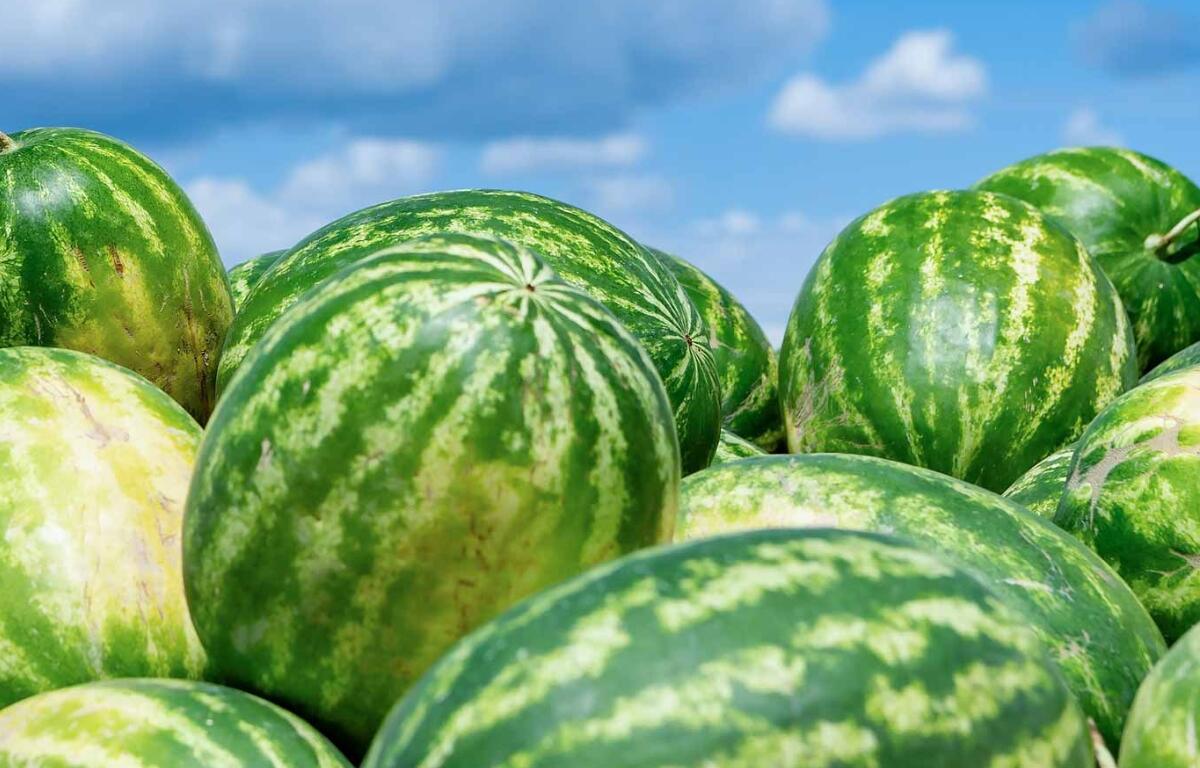SCOTTSBURG, VA (Virginia Farm Bureau) — Despite a wetter-than-average summer, some Virginia growers are anticipating a watermelon season worthy of celebration.
Halifax County farmer Trey Reese of Reese Farms Inc. in Scottsburg began harvesting his 70-plus acres of watermelon around July 2. While he couldn’t supply wholesale customers by the Fourth of July rush, he’s thankful for a relatively smooth season.
As of July 29, Scottsburg accumulated over 8 inches of rain throughout the month—doubling the area’s historical average for July, according to The Weather Channel.
“We’ve had too much rain, but some people have had a lot worse,” Reese reflected.
Remnants of Tropical Storm Chantal swept through Halifax County in early July, contributing to flooding and road closures in some areas. Reese is thankful his farm escaped the brunt of the storm and his watermelons survived.
“I’m sure some growers in the county are having issues because they’re bound to—it’s just raining too much,” he noted.
“It just seems to not want to stop,” remarked Mary West of Mt. Olympus Farm in Caroline County.
Like Reese, West’s 2 acres of watermelons are grown under plastic with drip irrigation.
“We have access to pond water, so we’d rather have a dry year than a wet year, because you can put it on but you can’t take it off,” she explained. “When it’s wet, it promotes funguses, molds, mildews and a whole handful of problems that you have to deal with.”
And drier years tend to yield sweeter watermelons, West added.
Despite excessive rain leading up to the farm’s early July harvest, West is grateful for a promising harvest. Her classic Sugar Babies, standard red seedless and yellow seedless melons are satisfying eager farm market customers and Northern Virginia farmers market customers.
“Everyone seems to be wanting melons early this year,” she said.
While West favors the Sugar Babies, “it just depends on your taste buds.” Some customers prefer the taste and tradition of her seeded melons—grown primarily as pollinators of her seeded varieties.
“There are plenty of customers who just want a ‘good old-fashioned, spit-my-seeds watermelon,’” she quipped.
Reese’s seeded Estrella watermelons help pollinate his seedless Black Jacks—known for their dark skin, exceptionally sweet flavor and crisp texture.
“I’m lazy. I just eat the hearts in the field, and the heart’s good on all of them,” he laughed.
Reese knows his melons are ripe and ready to pick when the tendrils dry up in the field, but thumping melons at the store to determine freshness takes practice, he noted.
“Thump the belly, and if you hear a flat sound, it’s overripe and probably tasteless,” West advised.
Customers can purchase West’s watermelons and various seasonal produce at her onsite farm store and at the Herndon, McLean and Reston farmers markets in Fairfax County. She expects ample melon offerings through September—coinciding with the farm’s pumpkin season.
Reese’s melons are available for purchase at his uncle’s onsite retail stand, Reese’s Farm Fresh Produce, through September.
Watermelons are grown on 241 farms totaling 595 acres, according to The U.S. Department of Agriculture’s 2022 census.
West encourages melon lovers to indulge in the plentiful peak-season offerings and “support local—wherever your local is.”



